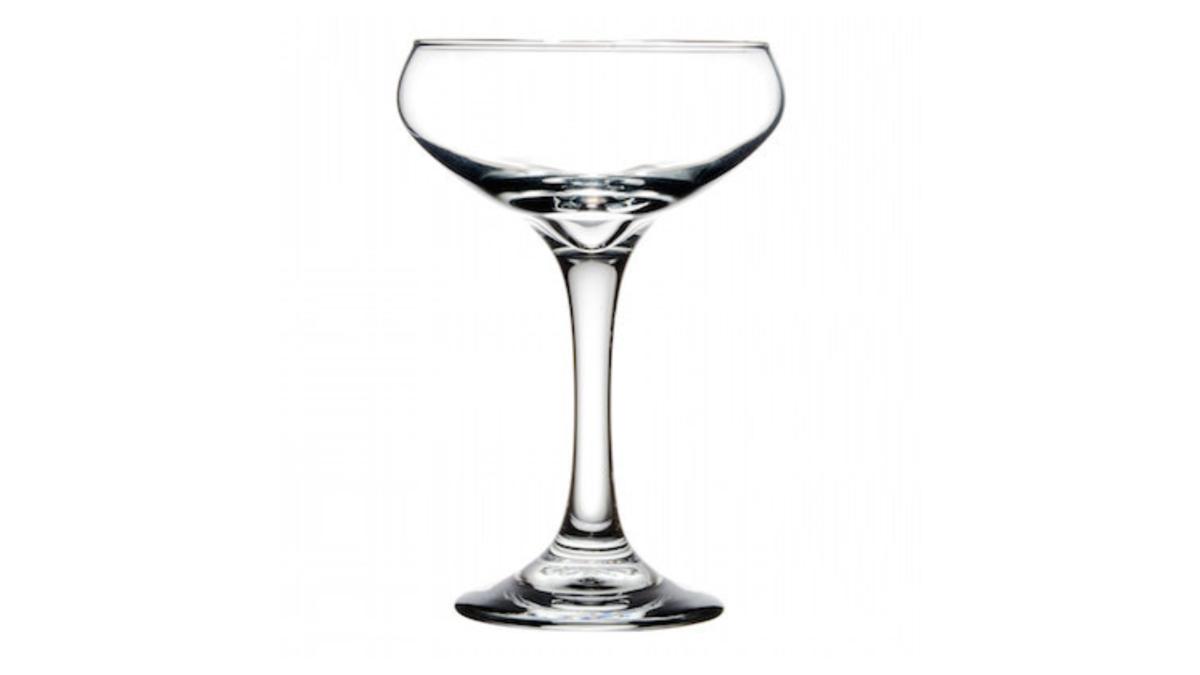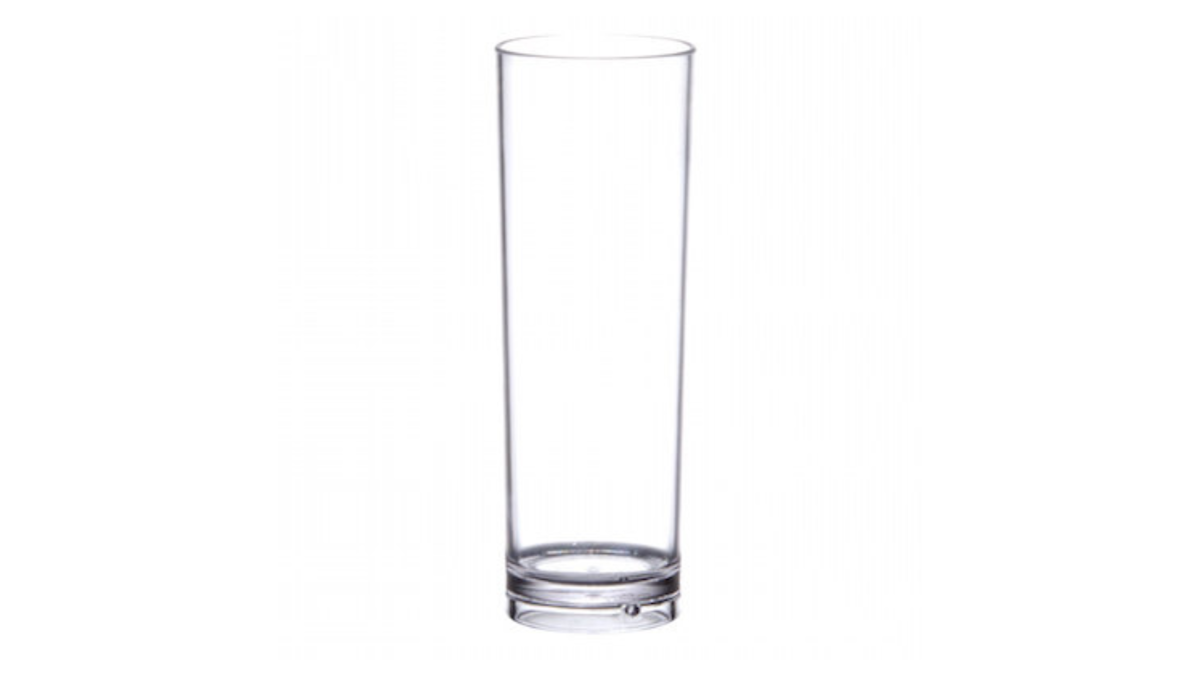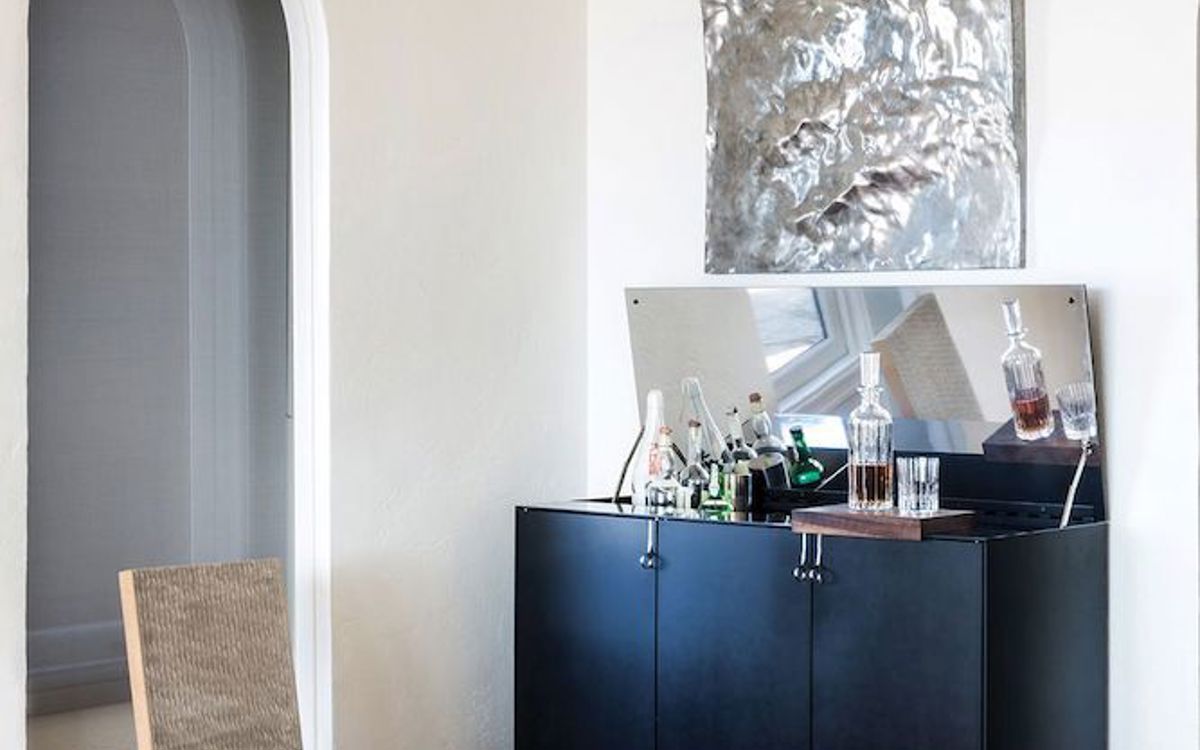
A home bar can mean many different things depending on your point of reference, be that 'The Great Gatsby' or 'Only Fools and Horses', or perhaps your favourite 'real' cocktail bar.
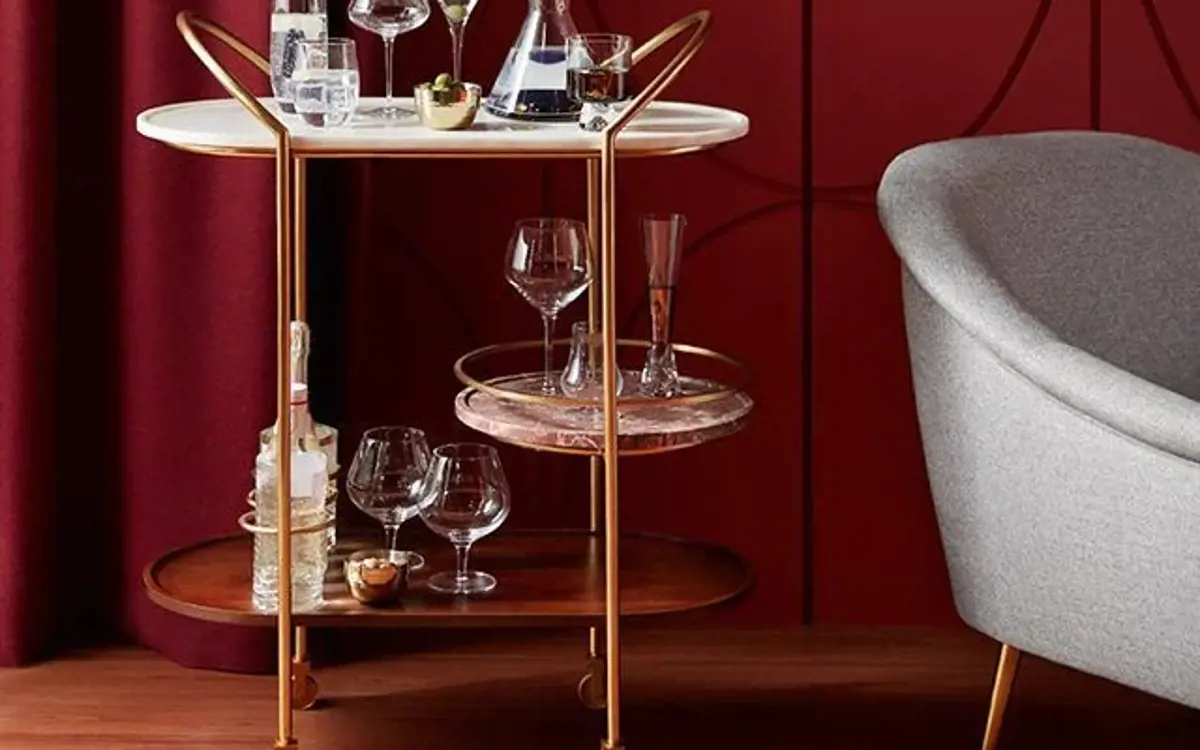
First of all, you'll need to work out where and how to arrange your bar, whether you want it easily accessible (and on show!) or tucked away. More living space means more freedom of course, you may like to invest in a sleek new credenza or sideboard that doubles as a drinks cupboard? Or, browse second-hand websites for a chic bar cart or trolley, although there are now many new options too. If you’re pushed for space, a mirrored tray on a sideboard or similar flat surface will be absolutely fine. We'd suggest keeping it modest and focus on ensuring your new bar compliments the room and home.
Next, it's learning about all the must-have essentials, like bar tools, spirits, glassware, mixers, garnishes and perhaps most importantly - must-read cocktail books. Tristan Stephenson, author of The Curious Bartender books, advises you to think dimensions before pretentions, “Home bars tend to be small, so you’ll want to be sparing with your ingredients and tools. This isn’t a bad thing, as it’ll mean you have less clutter and once you finish a bottle you can try something else.” He advises a good bottle from each spirit category, liqueurs maraschino and triple sec, some vermouth and bitters: “You can make hundreds of cocktails with that selection.”
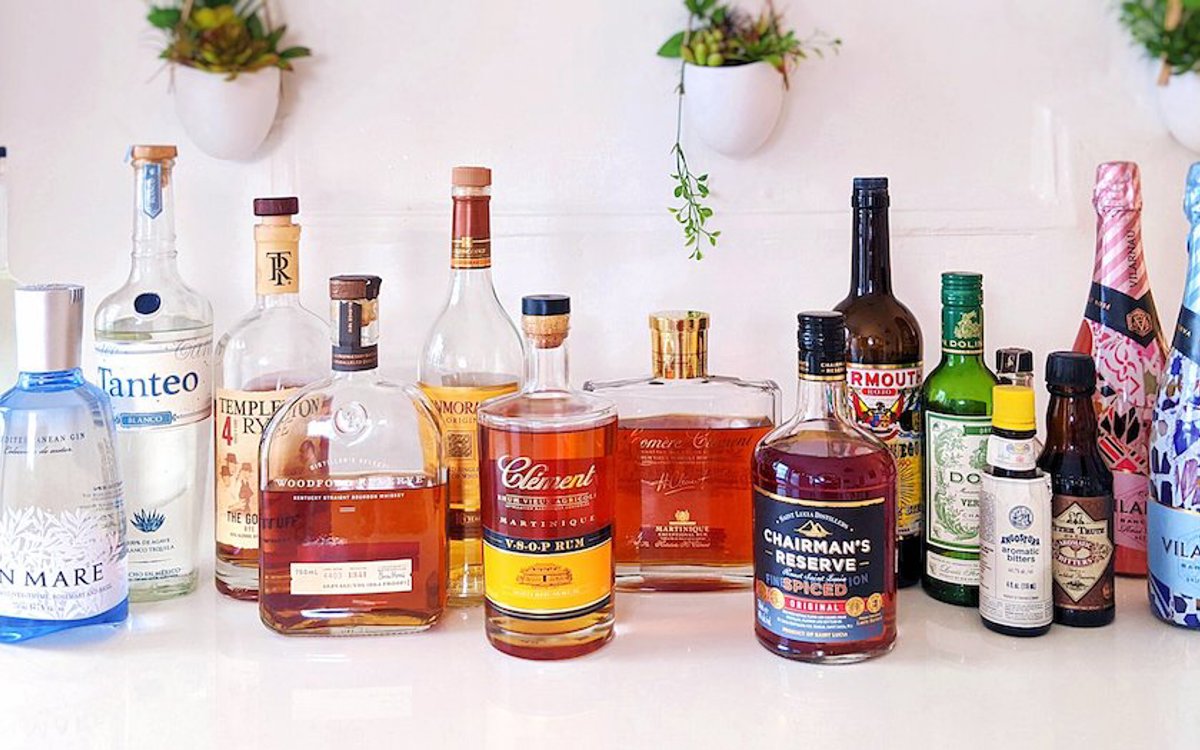
Tastes and options are vast, no doubt you'll get more exotic the more you 'enjoy' your home bar, but consider these options to start things off - a traditional wheat vodka and a citrus vodka, a solid gin like Plymouth Navy strength, light and dark rums, an Italian Aperitivo, sweet vermouth, maybe a couple of blended whiskies and a good Blanco tequila. Then there are the mixers, the staples any decent home bar should have are - Club soda, Tonic water, Coke or Diet Coke, a lemonade, Ginger ale and fruit juices (orange, cranberry, maybe pineapple). Also - Angostura bitters, Pink grapefruits, lemons and limes, caster sugar.
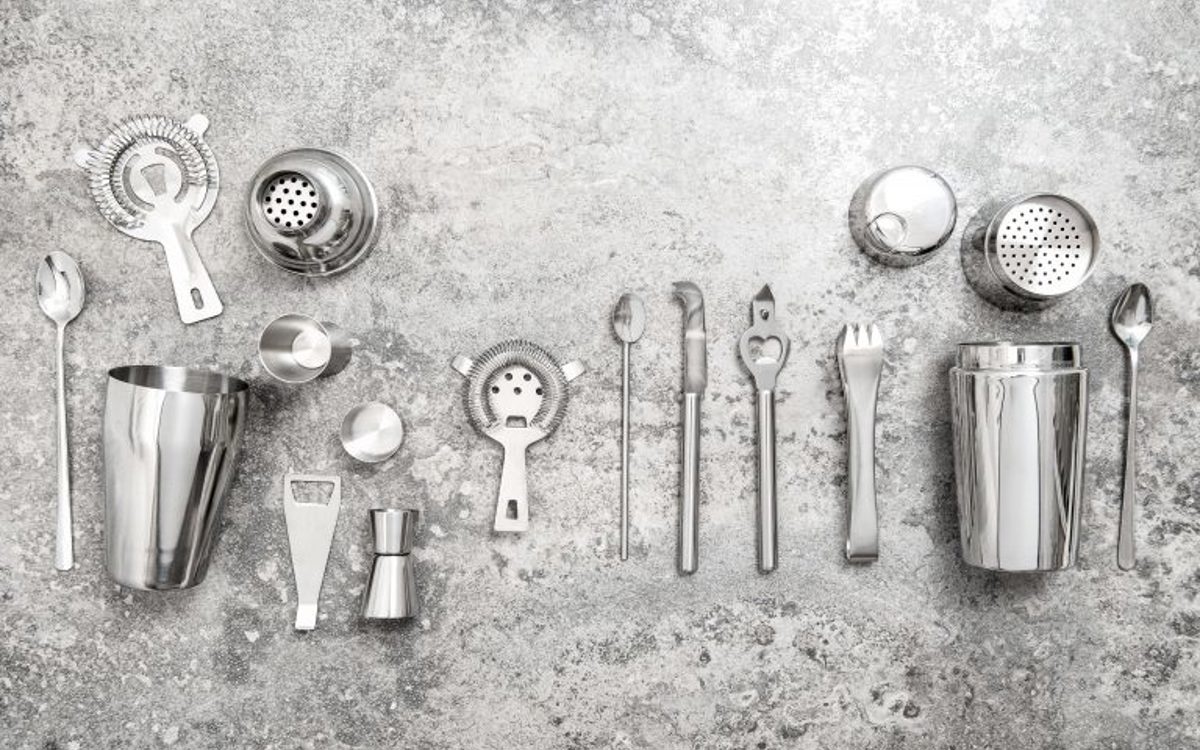
A good quality cocktail shaker, all shakers technically do the same thing, and there are very cheap and very nice versions. So there’s no superior option when it comes to function, but you want it to hold together well, release when cold, and let's be honest, you want it to look good sat up on your bar. Many professional bartenders use Boston-style shakers.
Strainer and fine strainer, you don’t necessarily need a strainer if you’re using a cobbler shaker, since it’s already got a strainer built into the lid. But if you’re using a Boston-style shaker, you should get what’s called a Hawthorne strainer to make sure the ice you used to chill your drink doesn’t end up in your glass and dilute the cocktail.
A 'jigger', it's one of those measuring cups used to measure the spirit or mixer into the shaker or mixing glass, go for a Japanese style. Also, a bar spoon, a paring knife, muddler, elbow juicer and quality ice cube trays. A little research and a few discerning choices will no doubt result in some equipment you'll cherish for years. Oh, and you may want to consider those rubber spill mats that real bars use. They’re less necessary at home but they’ll help keep your bar top clean, you know there will be inevitable spillages...
Glassware
Now you just need glassware. When considering glassware, it’s easy to get overwhelmed or obsess over having the proper glass for every occasion. Our advice (or the advice of the experts more accurately) is to start small. This is a home bar, after all.

